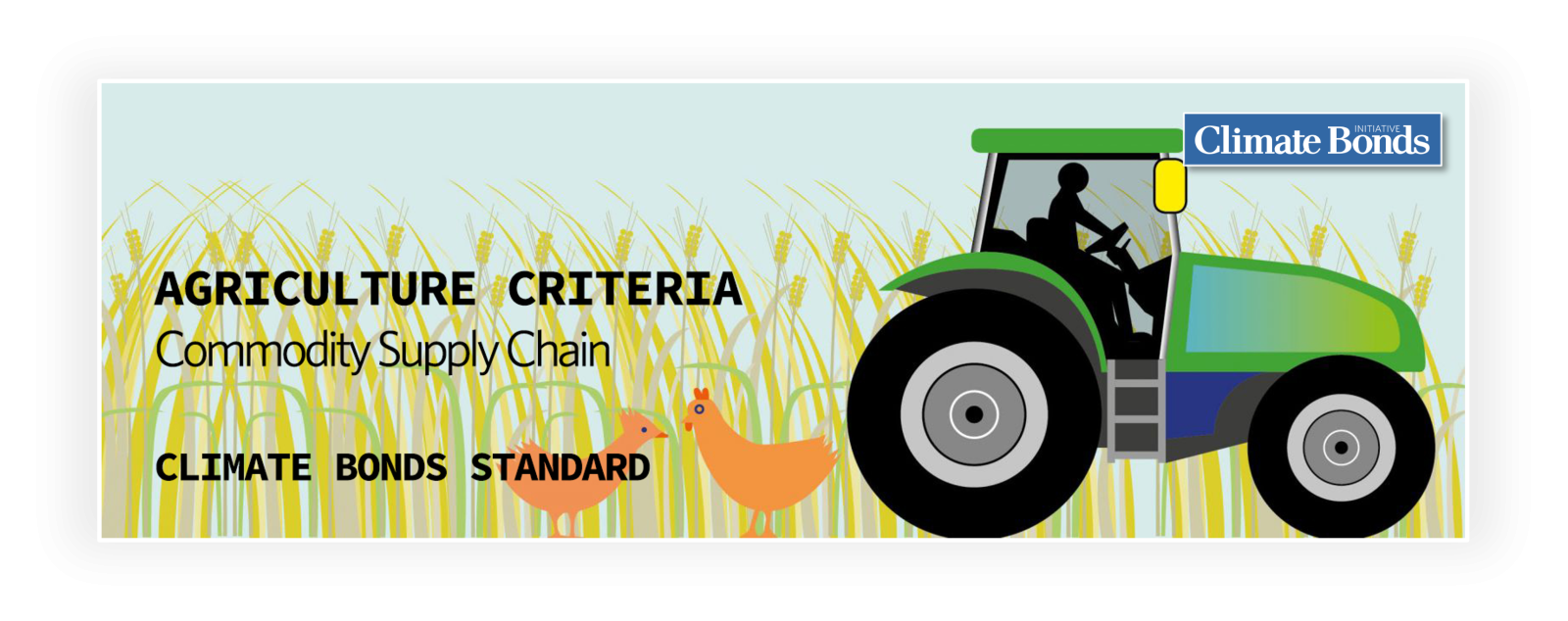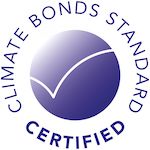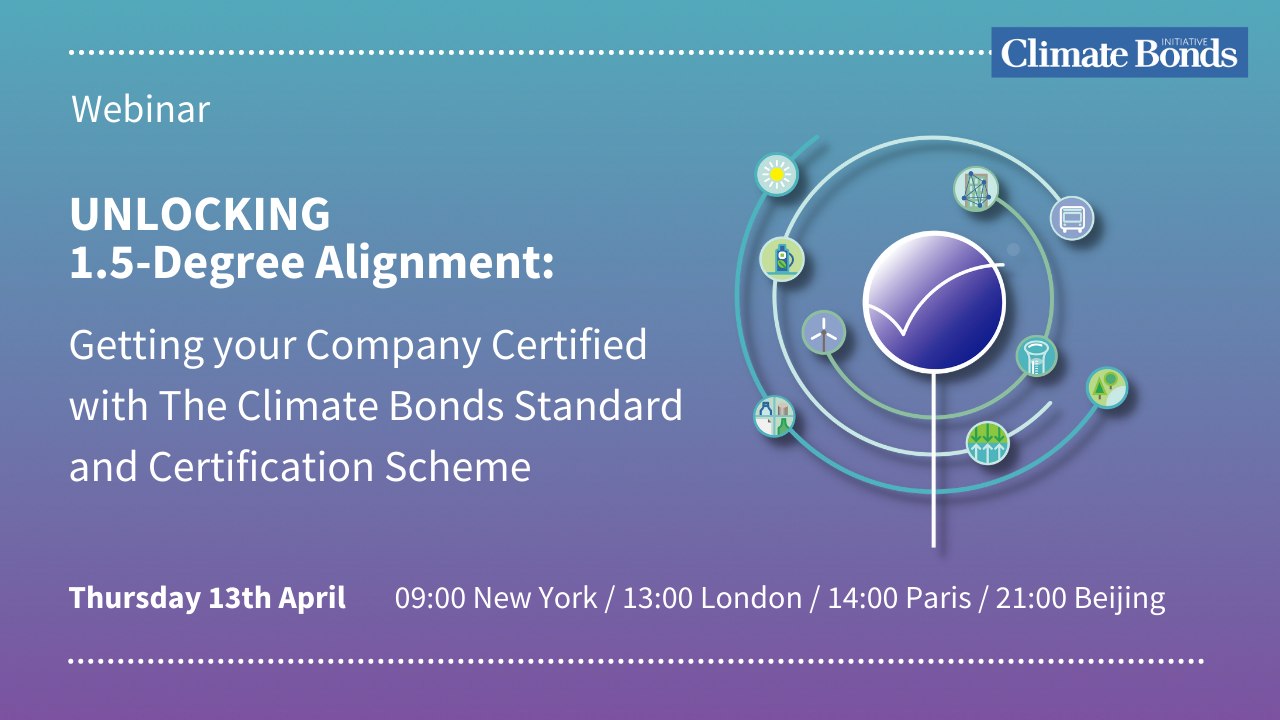
New Agri-Food transitions Criteria to pave the way for sustainable commodity supply chains with clear benchmarks and transition pathways
The proposed commodity supply chain (CSC) criteria will define and evaluate commodity supply chain companies by encompassing various components, including land use change, biodiversity, traceability, food loss and waste, transport and storage, and just transition.
The proposed CSC criteria will expand existing Agriculture Criteria under the Climate Bonds Standard and build upon frameworks such as SBTi, AFi, RSPO, and others that address supply chain issues and that can be used to certify assets and activities. The process will result in a sector-neutral criterion that can be used for agriculture, livestock, timber, and fishery supply chains.
This early stage of Criteria development involves consultation with technical and industry experts in these subsectors.
These experts, through Technical and Industry Working Groups (TWGs and IWGs), will ultimately determine the form and relevance of the Criteria.
What’s in and out of scope?
The Criteria aim to address supply chain production's climate and environmental impacts. This is part of a wider programme to facilitate the transition in agri-food systems towards net zero, including developing standards for commodity procurement strategies and other key elements of the value chain.
Out of scope for the proposed CSC criteria is Protected agriculture, farm activities, and biofuel crops.
New certification opportunities
 The overarching Climate Bonds Standard undergoes major structural expansion to version 4.0.
The overarching Climate Bonds Standard undergoes major structural expansion to version 4.0.
The new certification opportunities focus on guidance needed to demonstrate a credible transition for debt instruments such as SLBs and go beyond to deeper company-level assessments to provide assurance on climate credentials of the corporate entity, extending certification to not just their labelled debt but to the wider general-purpose debt and equity investment. Join the webinar on April 13th exploring these new offerings.
The commodity supply chain Criteria thus reflect that the Key Performance Indicators (KPIs) underpinning an SLB, or a supply chain company’s transition strategy, could be certified.
Certification indicates to investors that proper climate due diligence has been carried out on the assets or company they are investing in – a robust and credible way for that bond to enter the market, be it a transition bond or an SLB.
The benefits of issuing a Certified Climate Bond include the following:
- investor diversification (crop and livestock producing issuers should find they attract new investors by certifying)
- greater investor engagement
- investor stickiness (investors buying Certified Climate Bonds tend to buy and hold)
- strengthened reputation (certifying shows commitment to delivering sustainable agriculture)
- freeing up balance sheets
The complete list of Certifications using the Climate Bonds Standard can be found here.
Agri-food commodity supply chain and impact on transition investment
Supply chains are the engines for today’s global economy, delivering goods and services worldwide, connecting businesses and individuals who work for them across geographic, industry, cultural and regulatory boundaries.
Supply-chain processes are inherently complex across industries, with multiple functions interacting with different, potentially conflicting objectives and numerous dependencies between material and information flows. The agriculture supply chain is further complicated by fragmented inbound and outbound networks. The typical agriculture supply chain involves three steps: from farmers to intermediate silos, from silos to transformation plants, and from transformation plants to clients. Each step requires multiple decisions.
There is a growing consensus that the agri-food sector must become ‘climate and nature positive’ to align fully with net zero. This means first finding a shared understanding of what a 1.5oC-aligned climate transition looks like for agriculture. Other agri-food system goals must also be safeguarded, such as land use change, biodiversity, traceability, food loss and waste, transportation and storage, and just transition.
For this, green definitions are needed to facilitate financial flows to companies that genuinely contribute to transition in the sector, which is where the criteria come in.
It means encouraging supply from farmers that implement sustainable practices, working with actors that ensure traceability through the supply chain and promoting efficient transportation and storage solutions that decrease food waste and loss. Climate adaptation will be needed through more resilient suppliers, climate warning systems, and social safeguards.
Natural land conversion, including deforestation, must also be eliminated for supply chains. Agriculture and forest production must increase and protect biodiversity rather than decrease it.
Get in touch!
To develop the Criteria, the Climate Bonds establishes a Supply Chain Technical Working Group (TWG) of international experts from universities, multilateral-development banks, and consultancies. The Supply Chain Industry Working Group (IWG) – comprised of agriculture industry stakeholders, investors, and verifiers – is also being convened. The IWG will provide feedback on usability throughout the process.
Climate Bonds is therefore seeking new members for the Commodity Supply Chain TWG and IWG. Voluntary participation in these groups provides an excellent opportunity to drive change in the financial market, which is crucial if the sector is to transition successfully.
If you or someone at your organisation has technical or industry knowledge of the above issues and would like to get involved, don't hesitate to contact Daniela Silva, our Agri-Food Sustainability Analyst, at daniela.silva@climatebonds.net
'Til next time,
Climate Bonds.
Are you looking to assess a company's decarbonisation efforts? Look no further! Join our expert panel to learn about the importance of a rigorous and ambitious Transition Plan, current guidance in the market, and what investors need to ensure decarbonisation is credible and aligned with a 1.5ºC pathway. Don't miss out! #sustainability #decarbonisation #investing
Ready to demonstrate your company's commitment to a low-carbon future? Join us for a webinar on the Climate Bonds Standard and Certification Scheme's new Company-level Certification, offering assurance on the climate credentials of the corporate entity. #ClimateBonds #Sustainability #GreenInvesting



